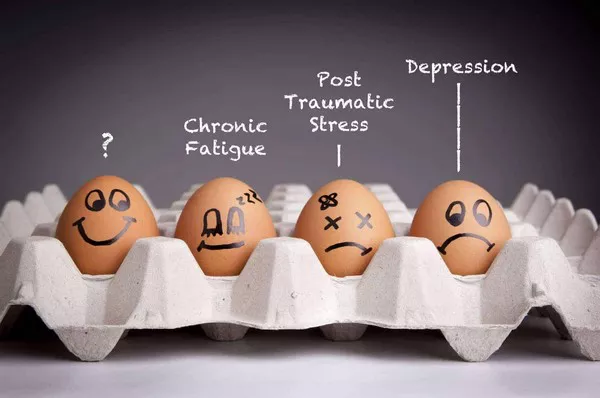In the fast-paced world we live in, it’s no surprise that many individuals encounter emotional challenges such as stress and anxiety. While these terms are often used interchangeably, they represent distinct emotional responses that can impact our well-being in unique ways. In this article, we’ll delve into the differences between stress and anxiety, explore their causes, symptoms, and effects, and provide actionable insights on how to manage and cope with these common emotional experiences.
Understanding Stress
1. The Body’s Response
Stress is the body’s natural response to external pressures or demands. It’s a reaction that helps us deal with challenges by triggering the release of stress hormones such as cortisol and adrenaline.
2. Causes of Stress
Stress can be caused by various factors, including work deadlines, financial pressures, relationship issues, and major life changes. It’s a normal and adaptive response to situations that require heightened attention and action.
3. Short-Term Nature
Stress is often a short-term experience. Once the stressor is removed or resolved, the body’s stress response diminishes, and the individual returns to a state of equilibrium.
Recognizing Anxiety
1. Persistent Worry
Anxiety, on the other hand, involves persistent and excessive worry or fear about future events. It’s not necessarily tied to a specific stressor and can occur even when there is no immediate threat.
2. Physical Symptoms
Anxiety can manifest in physical symptoms such as increased heart rate, trembling, sweating, and restlessness. These symptoms are a result of the body’s “fight or flight” response being activated.
3. Chronic Nature
Unlike stress, anxiety can persist even when external stressors are not present. Individuals with anxiety disorders may experience ongoing feelings of unease and apprehension.
Causes of Anxiety
1. Genetic Factors
Research suggests that genetic predisposition can play a role in the development of anxiety disorders. If there’s a family history of anxiety, an individual may be at a higher risk.
2. Environmental Triggers
Trauma, childhood experiences, and exposure to chronic stressors can contribute to the development of anxiety. These factors can shape an individual’s response to future challenges.
3. Neurochemical Imbalances
Neurochemical imbalances, including fluctuations in neurotransmitters like serotonin and dopamine, have been linked to anxiety disorders.
Symptoms of Stress
1. Physical Symptoms
Physical symptoms of stress may include headaches, muscle tension, fatigue, and changes in appetite. Stress can also weaken the immune system, making individuals more susceptible to illness.
2. Emotional Signs
Emotionally, stress can lead to irritability, mood swings, difficulty concentrating, and feelings of overwhelm.
Symptoms of Anxiety
1. Cognitive Symptoms
Anxiety can manifest as racing thoughts, excessive worry, difficulty concentrating, and fear of the worst outcome.
2. Avoidance Behavior
Individuals with anxiety may engage in avoidance behaviors to prevent situations or triggers that provoke anxiety. This can impact their daily functioning and quality of life.
Effects on Well-being
1. Short-Term Effects
While stress can motivate individuals to take action and address challenges, prolonged or chronic stress can have negative effects on physical and mental health.
2. Long-Term Consequences
Untreated anxiety disorders can lead to long-term emotional and physical health issues, including depression, insomnia, digestive problems, and cardiovascular risks.
Coping Strategies
1. Stress Management
Managing stress involves identifying stressors, practicing relaxation techniques, engaging in physical activity, and maintaining a healthy work-life balance.
2. Anxiety Coping Techniques
Coping with anxiety may involve cognitive-behavioral therapy, mindfulness practices, meditation, and in some cases, medication prescribed by a healthcare professional.
Seeking Professional Help
1. Knowing When to Reach Out
If stress or anxiety significantly impacts daily functioning, relationships, or quality of life, it’s important to seek help from mental health professionals.
2. Professional Guidance
Therapists, counselors, and psychiatrists can provide strategies for managing stress and anxiety tailored to individual needs.
Conclusion
In conclusion, stress and anxiety are common emotional experiences that, while related, differ in their causes, symptoms, and effects. Stress is a natural response to external pressures, often tied to specific stressors, and generally short-term. Anxiety, on the other hand, involves persistent worry and can be chronic, even in the absence of immediate stressors. Recognizing the differences between these emotional states is crucial for effectively managing and coping with them. Whether through stress management techniques or seeking professional help for anxiety, individuals can take proactive steps to improve their overall well-being and lead healthier, more balanced lives.


